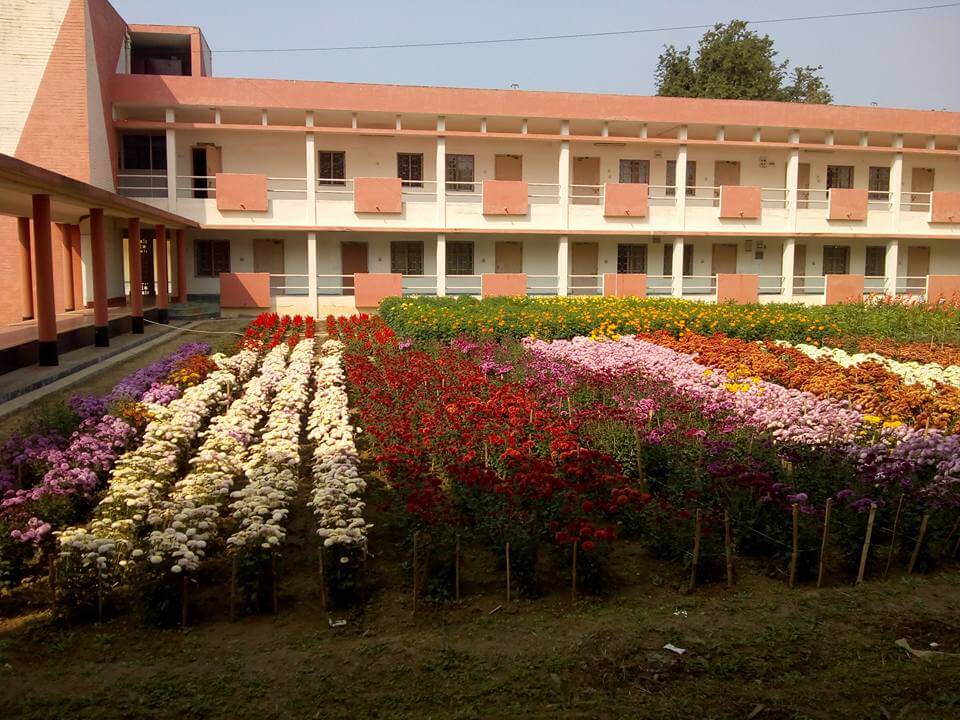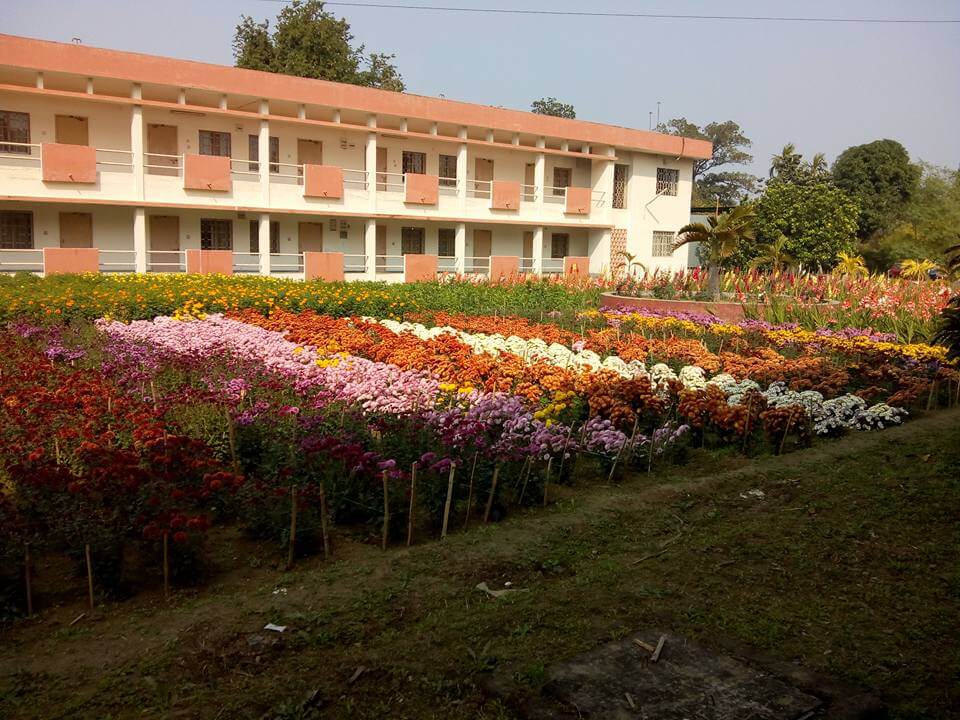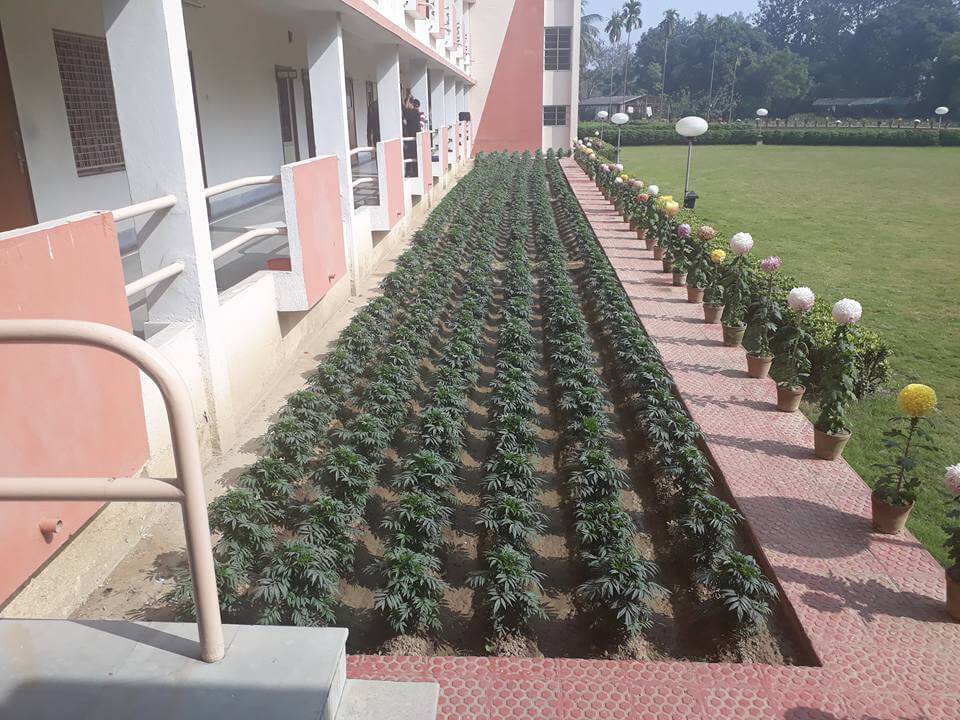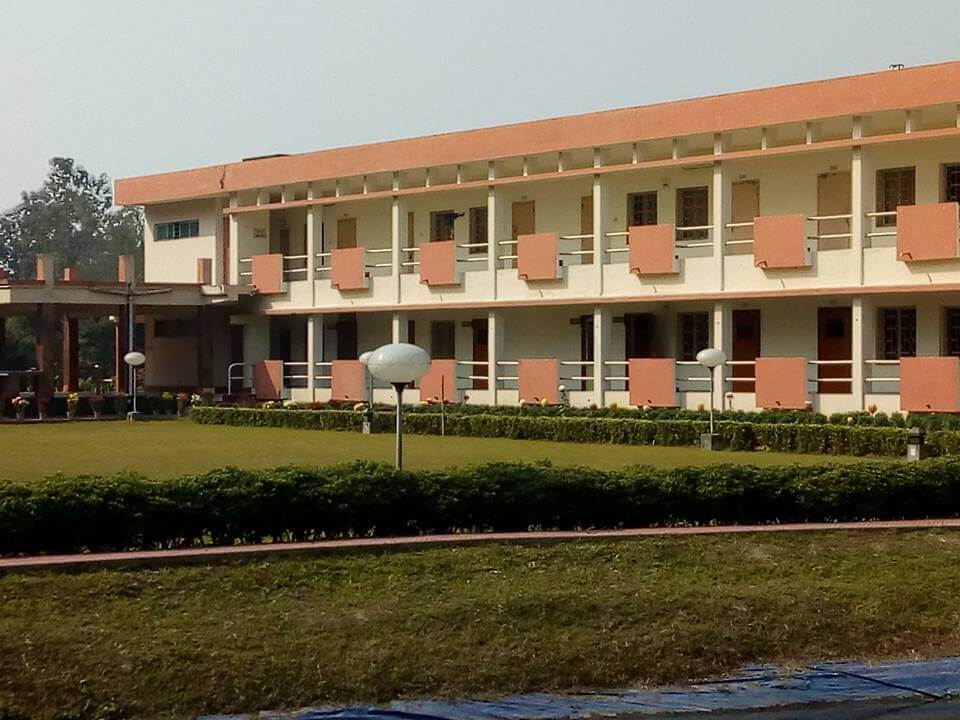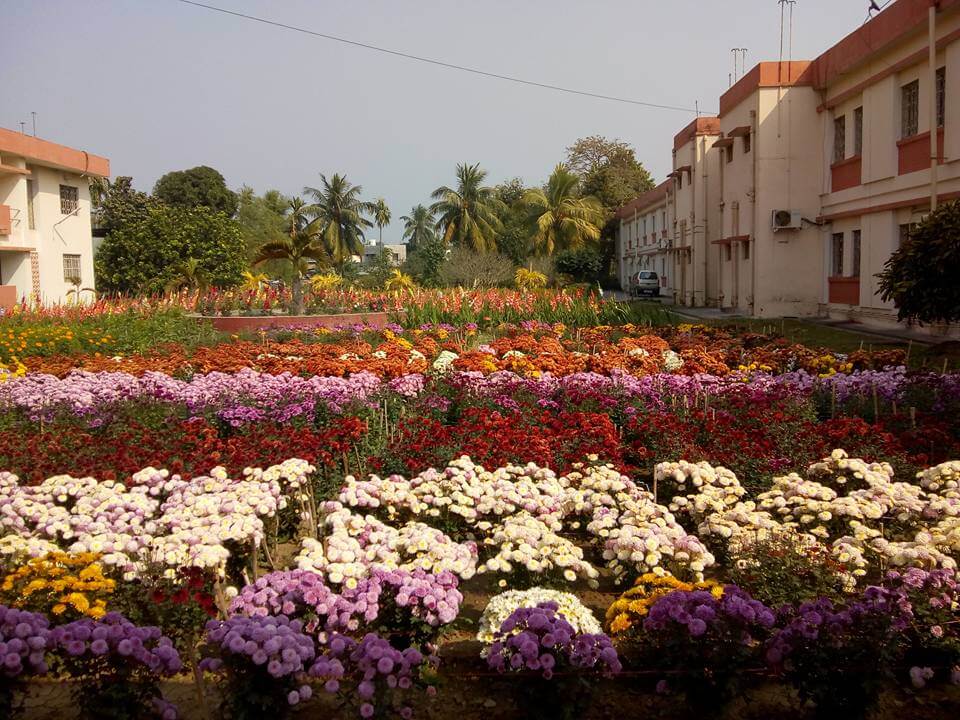Kalyani Lake Hall (FACC)
The Lake Hall i.e. the Farmers’ Academy and Convention Centre (FACC) has been successfully retaining its glory since its inception and day by day it is becoming a centre of excellence across Eastern India in the domain of agricultural education and extension through capacity building of the farmers and stakeholders. Farmers irrespective of gender and class come and stay here for days together during their training programmes. Round about 2000 farmers and farm women usually participate in and successfully complete various training programmes throughout the year. Apart from that, scientists, teachers, officers and students from different corners of the country and abroad every now and then come and board here round the year during seminar, symposium, meeting, workshop etc conducted by the BCKV. The excellent food and lodging facilities as well as the ambience of its campus attract everybody. Moreover, different educational institutions other than BCKV also conduct their seminar, symposium, meeting, workshop,winter school etc. in the auditorium and seminar halls of the Academy.
The Farmers’ Academy and Convention Centre (FACC) was assigned to carry out 25 residential training programmes for the Farmers (General and SC), Woman Farmers (General and ST) from the districts of South 24 Pgs., North 24 Pgs., Purulia, Bankura, Purba Bardhaman, Paschim Bardhaman, Purba Medinipur, Paschim Medinipur, Murshidabad, Nadia, Birbhum, Hoogly, Dakshin Dinajpur, Uttar Dinajpur, Malda, Jalpuaiguri, Coochbihar and Alipurduar. The residential training programmes were held at FACC Campus, BCKV, Kalyani in the year of 2017-18. Each batch comprised of 30 farmers/farm women. The FACC conducted 25 such trainings; thus 750 farmers and farm women participated in these trainings.
Objectives
The focal objectives of the trainings were to develop the skills and knowledge of the farmers and farm women for achieving the following goals:
- To make the farmers acquainted with the scientific and modern agro-techniques for crop production;
- To develop their consciousness about the flaws and follies in the present intensive agricultural practices; To steer them towards adopting the best management practices to conserve soil, air, water, biodiversity i.e. the environment as whole;
- To make the farmers and farm women groomed in the integrated approach in all aspects of farming i.e. integrated nutrient management, integrated pest management integrated water management etc;
- To motivate them in developing a sustainable agricultural system through adopting Integrated Farming Practices for the sake of diversification in their livelihood options, better family income generation, food and nutritional security vis-a-vis environmental and biodiversity conservation.
To know more click here

